




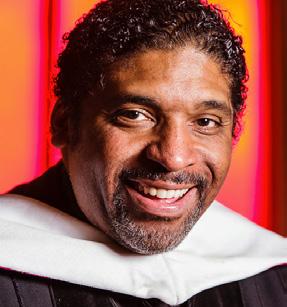
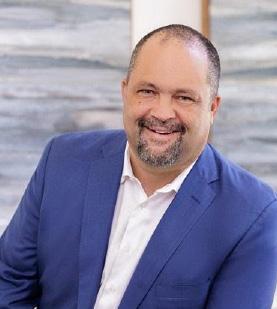


The Good News In 2024: Poor People Are the New Swing Vote by
P 9
The Scorching Truth: Extreme Heat is a Wake-Up Call to Act on Climate Change by Ben Jealous - P 9
My Grandmother Had Alzheimer’s But We Never Knew Until She Died by Mell P - P 26
West Indies Eliminated From Cricket World Cup After Loss to South Africa - P 28

Officials highlight ongoing terrorist threats and dire humanitarian needs in Somalia
A UN Security Council meeting on Monday detailed Somalia’s “exacerbated” humanitarian needs in the face of climate shocks and ongoing Government efforts to counter the terrorist group, Al-Shabaab.
James Swan, head of the UN Assistance Mission in Somalia (UNSOM) briefed ambassadors noting that the Somali government is prioritising security and combating AlShabaab fighters on many fronts.
“For its part, Al-Shabaab remains determined to continue terrorist attacks with little regard for the loss of civilian life,” he said. “I condemn these terrorist attacks and extend my condolences to the families of those killed.”
Mr. Swan said that current AU Transition Mission in Somalia (ATMIS) forces are leaving the regions as part of a “planned transition of responsibilities to Somali security forces” with the help of the UN Support Office in Somalia (UNSOS).
He noted that 5,000 ATMIS troops have left Somalia since June 2023, and further reductions are planned over the coming weeks.
Humanitarian needs and climate change
Mr. Swan, who is also the acting Special Representative of the Secretary-General for Somalia, informed Council members that the humanitarian situation remains “dire.”
Sudan: WHO appalled by horrific attack on El Fasher’s maternity hospital
Heavy fighting in Sudan hit a new low over the weekend when a maternity hospital in besieged El Fasher city came under attack, killing a pharmacy worker and prompting new calls on Monday from the head of the UN health agency for the violence to stop.
The attack on the only maternity hospital in the town in Sudan’s western state of North Darfur is “shocking and appalling,” the head of the World Health Organization (WHO) said on Sunday, calling on warring parties to “protect mothers and children at all times and allow them safe access to healthcare” in the war-torn African country.
WHO Director-General Tedros Adhanom Ghebreyesus noted that the Saudi Maternity Hospital was “the only one that has been providing maternal and child healthcare” in El Fasher.
The development comes after more than 14 months of fighting between rival militaries in Sudan.
Media reports pointed to “a Rapid Support Forces bombing” of the hospital in El Fasher, which is the capital of the Darfur region and home to hundreds of thousands of people displaced by the war.
Killed on the job
UN Resident and Humanitarian Coordinator for Sudan Clementine Nkweta-Salami released more details on the death of pharmacist Amna Ahmed Bakhit: “Killed on the job, prescribing and administering medicine to women, men and children in a place that should have been safe,” the top UN official in the country said in a post on X.
New famine alert for Gaza where families go days without food Gaza remains on famine alert after food security experts warned on Tuesday that more than one in five households “go entire days without eating”.
According to the latest UN-partnered IPC report on hunger levels, 96 per cent of the population – some 2.15 million people – face acute food insecurity at “crisis” level or higher. That’s level three of the Integrated Food Security Phase Classification (IPC) index (check out our explainer on the IPC system here).
Included in this number are almost half a million people enduring “catastrophic” conditions (IPC level five), the IPC update noted, underscoring the “high risk” of famine across the whole Gaza Strip “as long as conflict continues and humanitarian access is restricted”.
Access critical
At the same time, the update pointed to “a slight improvement” in the food security situation in Gaza’s northern governorates, where potential famine was feared by the end of May.
“The improvement shows the difference that greater access can make,” said the UN World Food Programme (WFP) in response to the IPC findings. “Increased food deliveries to the north and nutrition services have helped to reduce the very worst levels of hunger, leaving a still desperate situation.”
Effort to restore Iran nuclear deal ‘remains elusive’, Security Council hears Restoring the Iran nuclear deal to its full and effective implementation “remains elusive”, the UN’s top political affairs official said on Monday, adding that participating countries remain at odds with each other.
Rosemary DiCarlo, Under-Secretary-General for Political and Peacebuilding Affairs, was updating ambassadors in the Security Council.
The United States has not returned to the Joint Comprehensive Plan of Action (JCPOA), as the deal is formally called, nor has it lifted or waived the unilateral sanctions it reimposed after its withdrawal in May 2018. Neither has Washington extended waivers over oil trading with Iran.
As for Tehran’s policies, the Government has not reversed any of the steps it has taken since May 2019 which are inconsistent with its nuclear-related commitments.
The 2015 JCPOA lays out the rules for monitoring Iran’s domestic nuclear programme and paved the way for US sanctions to be lifted. It was agreed by Iran, the five permanent members of the Council (China, France, Russia the United Kingdom and the United States) plus Germany together with the European Union.
Unable to verify
Ms. DiCarlo also referred to May’s report from the International Atomic Energy Agency, in which the nuclear watchdog “observed again that, regrettably, its verification and monitoring continues...
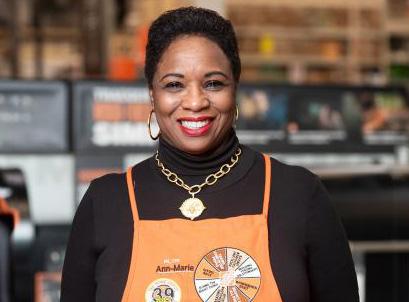
SUNRISE, Fla. — Ann-Marie Campbell, executive vice president of U.S. stores and operations at Home Depot, announced a $100,000 donation to her alma mater, Holy Childhood High School, at the recent HCHS International Alumni Gala held at the DoubleTree Hotel.
Sister Maxine McIntosh, principal at HCHS, expressed the school’s gratitude for
Campbell’s donation and ongoing commitment. “We are incredibly grateful to Ms. Campbell for her generosity,” McIntosh said. She noted that the donation is expected to have a lasting impact on both the students and the community. McIntosh added that the school is thrilled to partner with the Holy Childhood International Alumni Association in its mission
to provide top-quality education. Campbell, who has remained dedicated to her high school since her graduation, emphasized the importance of sports in education. Her donation will significantly enhance the athletic facilities at HCHS. “I am excited about the positive impact this donation will have on the students at Holy Childhood, both now and in the future,” she said.
Evangelist Dr. Michelle Richards, president of the alumni association, stated that the funds would be used to renovate and upgrade the school’s gymnasium, providing a modern and safe facility for physical activities and sports. The donation will also help the school acquire new equipment and technology, enhancing the athletic experience for students. Additionally, financial aid will be provided for deserving students.
In addition to Campbell’s contribution, HCHS received a $10,000 donation from the proceeds of the HCHS International Alumni Association and a $1,000 donation from Jamaican-American Tamarac Commissioner Marlon D. Bolton. The gala also recognized ten alumni for their contributions to the school: Nora Blake, Georgia Bowen, Lakeish Brown, Sophia Cummings, Georgia Hamilton MacBride,
Nerisa Henry, Tania Hernandez, Hazel Maragh, Dr. Diane Moore Eubanks, Nadine Cardoza Tomlinson, and Dr. Camesha Whittaker.
Ann-Marie began her career with The Home Depot in 1985 as a cashier in South Florida. She learned her first lessons in retail from her grandmother in Jamaica, who owned a small furniture store and had a reputation for friendly, top-notch customer service. After more than 35 years with the company, Ann-Marie brings a deep understanding of The Home Depot’s operations, culture and customers.
Over the years, she has served in a variety of positions, including store manager, district manager and regional vice president. She has also served as vice president of operations, vice president of merchandising and special orders, vice president of retail marketing and sales for Home Depot Direct, vice president of vendor services and president of the Southern Division. Living Home Depot’s values is a passion for Ann-Marie. She is an active Team Depot volunteer, working side by side with other associates to give back to local communities. She serves on the board of the Georgia Aquarium and Workday.
Cuba announced on Friday that it will join South Africa’s case against Israel at the International Court of Justice, according to Anadolu Agency (AA). Radio Havana Cuba reported that under the Convention on the Prevention and Punishment of the Crime of Genocide, Cuba will exercise its right as a third party to provide its interpretation of the convention, alleging that Israel has committed violations in the Gaza Strip.
The Cuban Foreign Ministry noted it decided to join the case to support international efforts to put an end to the crime of genocide committed against the Palestinian people.
“Israel ignores its obligations under the Fourth Geneva Convention (concerned with the protection of civilian persons in time of war), under the protection of American complicity,” it said and asserted that “genocide, apartheid, forced displacement, and collective punishment have no place in the world,” it said.
The case aims to stop the atrocities against the Palestinian people, citing Israel’s disproportionate and indiscriminate use of force in the occupied Gaza territory. Cuba
emphasized that Israel, with US complicity, has consistently ignored its obligations under the Geneva Convention as an occupying power.
Cuba condemned genocide, apartheid, forced displacement, and collective punishment, stating that these actions have no place in today’s world and should not be tolerated by the international community. It called for justice and adherence to the UN Charter and international law.
Israel faces accusations of genocide at the International Court of Justice, which recently ordered Tel Aviv to halt its operations in Rafah, where over one million Palestinians had sought refuge before the May invasion. Despite a UN Security Council resolution demanding an immediate ceasefire, Israel has continued its offensive in Gaza, drawing international condemnation. Since October 7, over 37,000 Palestinians have been killed and more than 85,000 injured.
More than eight months into the conflict, Gaza remains devastated with widespread destruction and a crippling blockade affecting access to food, clean water, and medicine.
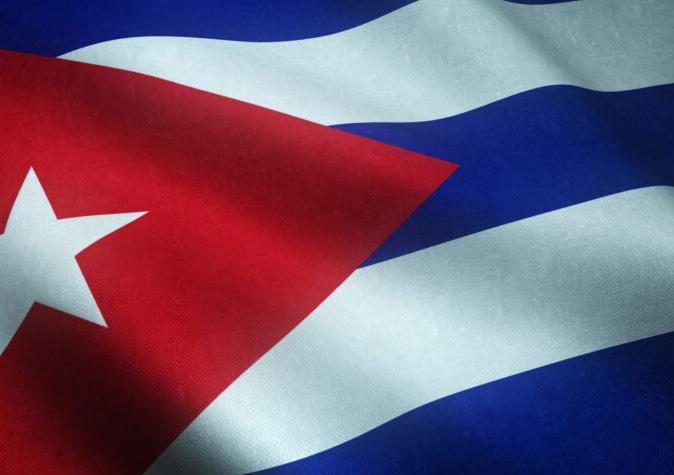

A Kenyan force is set to depart for Haiti on June 25 to lead a UN-backed mission aimed at curbing gang violence, despite ongoing legal challenges, according to government and police sources.
Kenya has volunteered approximately 1,000 police officers to help stabilize Haiti, joining personnel from several other nations. However, this deployment has
faced legal obstacles within Kenya.
President William Ruto, a strong advocate for the mission, announced earlier this month that the deployment would begin soon.
An interior ministry official, speaking on condition of anonymity, confirmed, “The departure is this week on Tuesday.”
A senior police official added, “Prepara-
In a move that bypasses a months-long hold on the funds by Republican lawmakers, The Biden administration will award nearly $110 million in security and police assistance to Haiti.
The funds include $15 million to the Haitian National Police to counter gang violence and $95 million for security mission support.
Secretary of State Antony Blinken made the decision following more than 100 briefings to Congress by the State Department and that the Biden administration remained committed to working in “close consultation” with that body.
As reported by a state official reported –“the security situation in Haiti remains untenable due to violence perpetrated
tions are set for the team to depart for Haiti on Tuesday. We already have two advance teams that left—one last week and another one yesterday.”
Although a UN Security Council resolution approved the mission in October, a Kenyan court delayed the deployment in January, ruling that the government lacked the authority to send police officers abroad without prior agreement. This agreement was secured on March 1, but a small opposition party has since filed a new lawsuit to block the deployment.
In addition to Kenya, other countries willing to join the mission include Benin, the Bahamas, Bangladesh, Barbados, and Chad.
While the United States is providing funding and logistical support, it will not be deploying troops to Haiti, the poorest country in the Americas.
Human Rights Watch has expressed concerns about the mission, including doubts about its funding and the conduct of Kenyan police, who have been accused
of using excessive force and committing unlawful killings.
Recently, a police watchdog announced an investigation into allegations that a 29-year-old man was shot by officers in Nairobi following youth-led protests against proposed tax hikes.
Haiti has long struggled with gang violence, but conditions sharply worsened in late February when armed groups launched coordinated attacks in the capital, Port-au-Prince, aiming to overthrow then-prime minister Ariel Henry.
In early March, Henry announced he would step down and transfer executive power to a transitional council, which appointed Garry Conille as interim prime minister on May 29.
The violence in Port-au-Prince has severely impacted food security and humanitarian aid access, with much of the city controlled by gangs accused of abuses including murder, rape, looting, and kidnappings.
by violent gangs, and the people of Haiti cannot wait,” the official said.
Top Republican on the Senate Foreign Relations Committee, Senator Jim Risch, was not happy with the move to override the hold on the funds.
In a statement, he said, “The Biden Administration’s choice to override the hold I had placed on U.S. taxpayer funding for the ill-conceived Haiti MSS (Multinational Security Support Mission) is extremely disappointing.”
Although leaders of the foreign relations committees have approval power over the money, the administration can override their holds it it is deemed extreme enough to warrant going ahead.
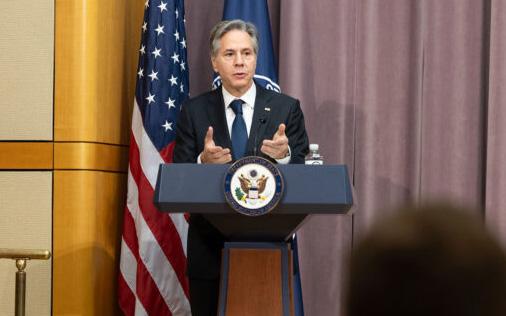
Nearly 580,000 people are internally displaced across Haiti, a 60 percent increase since March, according to the latest data from the International Organization for Migration (IOM) in the country.
“The figures we see today are a direct consequence of years of spiraling violence – that reached a new high in February – and its catastrophic humanitarian impact,” said Philippe Branchat, head of the IOM in Haiti.
“The unending crisis in Haiti is pushing more and more people to flee their homes and leave everything behind. This is not something they do lightly. What’s more, for many of them, this is not the first time.”
In addition to the displacement in and around the capital Port-au-Prince, the skyrocketing violence and effective siege
imposed by armed groups has pushed ever greater numbers of people to flee to neighboring provinces. This has doubled the number of internally displaced persons (IDPs) in the Southern region from 116,000 to 270,000 in the last three months alone.
Nearly all those internally displaced are currently hosted by communities already struggling with overburdened social services and poor infrastructure, raising further concerns about tensions with the potential to spark further violence. This is particularly acute in southern areas already weakened by the 2021 earthquake, which are now hosting almost half of Haiti’s internally displaced population.
Since the end of February, movements of goods such as medicine and fuel between the
capital and the provinces have been severely limited, further exacerbating the humanitarian crisis.
In the metropolitan area of Port-au-Prince, two thirds of IDPs live in spontaneous sites with very limited access to basic services. Schools and learning institutions currently make up 39 of the 96 active displacement sites and host 61,000 people, severely limiting school attendance. Sustainable, decent employment opportunities, equal access to basic services, and access to education for both IDPs and host communities are urgently needed.
IOM is continuing to monitor and respond to the needs of displaced and affected communities, working in collaboration with partners and local authorities to provide humanitarian
assistance and support for durable solutions. Since the end of February, the organization has provided nearly 5 million litres of clean water to some 25,000 people and rehabilitated 22 water hand pumps. More than 37,000 people have been provided with relief supplies including blankets, water containers, solar lamps, kitchen sets and plastic sheets. Mobile clinics have been deployed to provide medical assistance for 18,000 people and psychosocial support has been made available, including through a free hotline. IOM is also engaged in awareness-raising activities with local communities – focusing on topics such as child protection, mental health, accountability and reproductive health – that have benefited thousands of people. (IOM)
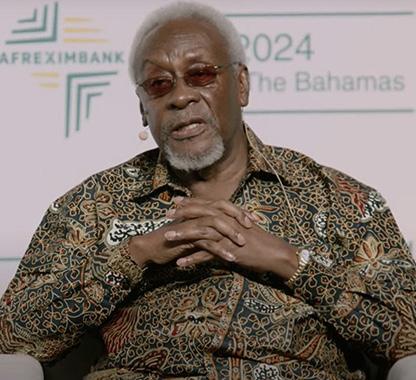
Former Jamaica Prime Minister, Percival J. Patterson, says it is time for action as he rallied Africa and the Caribbean countries to work together to advance their common interest. “And my message simply is time for talking done. Time for action now. And let us begin with this conference in Nassau, in the presence of Afreximbank,” Patterson told the Africa Export-Import Bank (Afreximbank) 31st Annual Meeting (AAM2024).
Patterson joined Chief Olusegun Obasanjo, former President of Nigeria in a panel discussion titled “A Time to Pause and Reflect: A Global Africa Vision for Afri-Caribbean Socio-Political and Economic Cooperation and Integration – Perspectives of Former Leaders.”
“And let us decide we are going to forge our own path and we are going to finance our own development and we are going to develop our own trading links between us. Nobody will stop us if we act as one,” Patterson said.
Patterson noted that African and Caribbean leaders identified six areas of focus during the summit in Barbados three years ago.
“First of all, on the political level, we have to fight to change the United Nations and its structure,” he said, noting that the Security Council is the powerhouse for peace and security and when any of its members has an interest, “we see the inability to act.
“Africa has no position at present,” Patterson said, adding that Africa and the Caribbean must be resolute in demanding change.
“The 54 countries of Africa, 14 countries of the Caribbean, 68 of us, we must demand that Africa has a permanent seat in the Security Council,” Patterson said, adding that the two regions must also demand an overhaul of multilateral lending institutions.
“They call themselves donor agencies. Donor agencies give. Donor agencies do not lend to be paid back. And our whole economic system is lopsided. They create special drawing rights and they get the bulk of it. They don’t respond to the challenges sufficiently of things like COVID and of climate change.”
Patterson said that the third point is within the
competence of Africa and Caribbean nations.
“The slave trade must be converted into a trade of goods and services,” he said, pointing out that Africa only accounts for three per cent of world trade and the Caribbean 0.5 per cent.
“We don’t need anybody’s permission; we can trade among ourselves. If Europe could do it on a triangular basis, we must be able to do it on a direct basis.”
Patterson also emphasised knowledge, saying it has always been the case that knowledge is power.
“But even more so in the age of technology, we must emphasise education. And in the process of education, we must learn about our true selves, the civilisation that emanated from Africa in ancient times.”
He quoted Jamaican reggae sensation,, the late Bob Marley, who echoed the words of Emperor Haile Sellassie when he sang “we are advanced in knowledge”.
“We are one human race. Out of that education, we must insist on technology. And we have seen, particularly in COVID, what happens when we are relying on others for technological information.”
Patterson said his sixth point was an adoption of a meeting taken by Caribbean heads in Nassau in 1993.
“We said the health of our region is the wealth of our region. So the health of Africa and the
Caribbean is the wealth of the Caribbean and the region.”
Patterson said he was concerned that the first Africa-Caribbean summit was held three years ago and no arrangements have been made for the second summit.
“I know from experience what is the danger when you start something, however well-intentioned, and you allow your attention to be diverted to other things. BRICS has its place.
The G20 has its place. The ACP has its place. “But nothing must be allowed to interfere with the development of Africa and the Caribbean as one single bloc that acts in concert on the political, economic, and social fronts. And let us decide here in Nassau we will accept nothing less.”
‘Will without action is abortion,: said Obasanjo, who also addressed the issue of acting on intent saying that there are “received ideas that we have taken on … with almost with slavery and slave mentality.
“We have to get out of this and nobody will help us,” the African elder statesman said, adding that one of the first lessons he learnt from his father was not to outsource to others what he can do for himself.
“Because it will not be good enough. We have outsourced our development to others to do for us. The time has come when that should stop,” Obasanjo said.

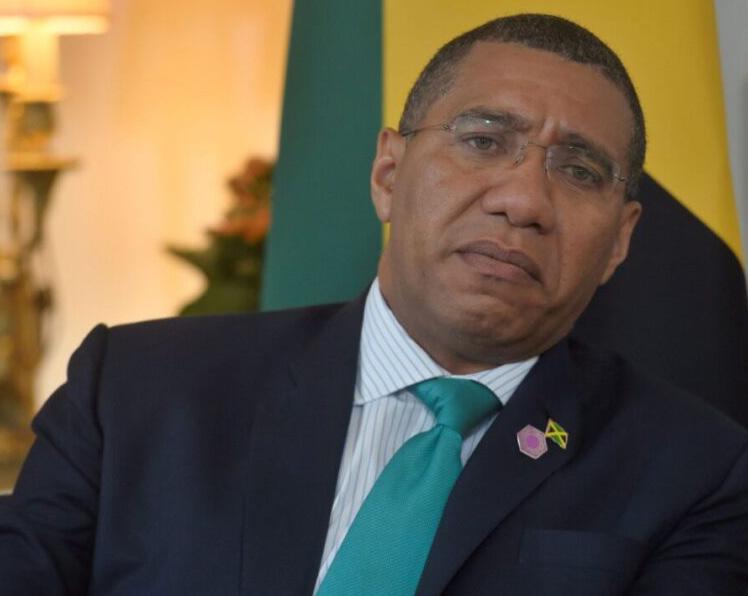
Prime Minister, the Most Hon. Andrew Holness, is encouraging Jamaicans living overseas to join in spreading the message about the importance of increasing productivity in the economy.
“We need to address the issue of productivity. Even if we were to radically increase wages and radically increase the minimum wage, if that is not sustained by a commensurate increase in productivity, then
those increases become inflationary,” he said.
Addressing the 10th Biennial Jamaica Diaspora Conference at the Montego Bay Convention Centre in St. James on Tuesday (June 18), Mr. Holness said members of the diaspora can play an integral role in conveying the productivity message to their families in Jamaica.
He pointed out that improved productivity forms part of the public policies in the countries where members of the diaspora reside.
“The policies that we’re trying to implement are the same policies that you are, every single day, observing in the countries from which you come. Efficiency and productivity are hallmarks of [the] developed societies in which you are. They are not viewed as an imposition. Every single worker understands and appreciates that, ‘Yes. Because I have produced more, I have a claim for more pay,” the Prime Minister reasoned.
Mr. Holness maintained that “[this] is a culture that we need to build here in Jamaica”, adding that ‘you (diasporans) can be of great assistance to us to make that connection”.
“[So], yes, Government can increase the wages but if we are increasing the wages without addressing productivity, we are only tricking you, because that increase is going to come back as high inflation.
“So the two-pronged strategy [is] we’re increasing [wages] as much as we can whilst balancing the inflation so you don’t have to suffer from that. But we must now be on this very rigorous pathway of producing more,” he emphasised.
The Prime Minister further underscored that consequent on the improvements recorded in the country’s macroeconomic conditions, increased productivity is required for all Jamaicans to reap more benefits, including high wages that are sustainable.
“We’re increasing at about one to two per cent… our growth… is now sustainable. [So] it is [now about] an increase in the productivity, not just of labour… not just of the worker but how management is structuring business processes and workflows, how are we integrating technology in our business processes and workflows, how are we creating new products… this business of innovation,” Mr. Holness said. (JIS)
Commissioner of Police Dr. Kevin Blake is urging Jamaicans abroad to support social intervention initiatives aimed at positively influencing the country’s youth. Speaking during a fireside chat at the 10th Biennial Jamaica Diaspora Conference in Montego Bay, St. James, on Monday, Blake emphasized the need for community involvement to provide safe and constructive environments for children.
Highlighting the importance of these initiatives, Blake encouraged the diaspora to participate in projects such as building community centers. These centers, he explained, would offer safe spaces for inner-city children to go after school, particularly when their parents are at work. “We the police are competing with the gangsters for the hearts and minds of these children,” Blake stated, urging support to keep children engaged and away from criminal influences.
Despite significant investments in training and education, Blake pointed out that children remain vulnerable to gang influence in their communities. “We need them to be in places where they are secure,” he stressed.
Blake also highlighted Project S.T.A.R (Social Transformation and Renewal), co-chaired with former president of the
Private Sector Organisation of Jamaica (PSOJ), Keith Duncan, as another initiative where the diaspora can make a difference. This project involves engaging communities to identify their problems and facilitating solutions derived from within the community, which Project S.T.A.R then helps to implement.
He emphasized that a key aspect of Project S.T.A.R is ensuring tangible benefits for the communities involved. “We insist that there must be economic viability, whether through job creation or entrepreneurial opportunities,” he added.
Beyond Project S.T.A.R, Blake is focused on changing the narrative and perception of Jamaica and the police among the diaspora. He acknowledged that despite efforts to communicate effectively, misconceptions persist. “A single incident can sometimes define the entire force, overshadowing the true narrative,” Blake explained, stressing the importance of preserving the island’s goodwill and image.
Expressing appreciation for those in the diaspora who show genuine interest and pride in helping their homeland, Blake said he was encouraged by their visible commitment to supporting Jamaica’s development.
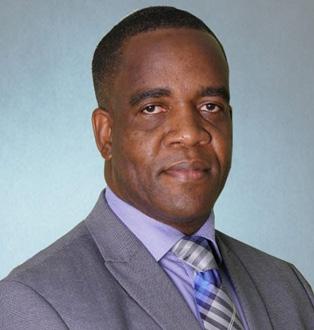
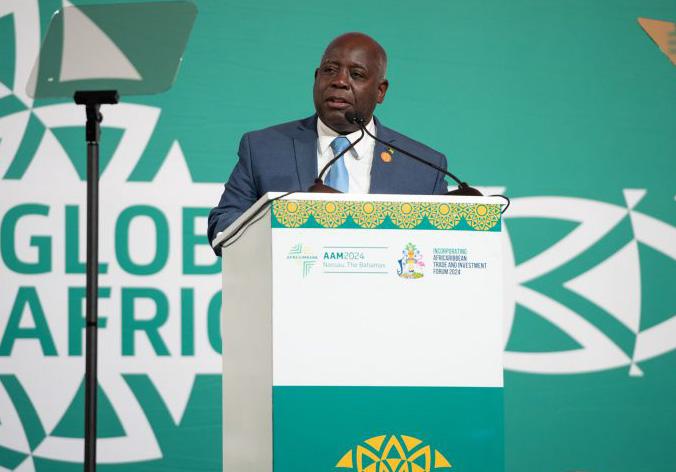
The Honourable Philip Davis, Prime Minister of the Bahamas, delivered a stirring speech at the Afreximbank’s annual meetings in Nassau, Bahamas, articulating a vision for “Global Africa” that transcends geographical boundaries to unite African and Caribbean nations in economic prosperity and self-determination.
Mr Davis acknowledged the global economic landscape’s shift towards protectionism and nationalism, emphasizing how these trends undermine multilateralism and global cooperation essential for addressing global issues like climate change and poverty. He criticised the biases within global financial systems, ad-
vocating for a fairer approach that benefits all nations, particularly those that have been historically marginalized.
Central to Mr Davis’s speech was the concept of Global Africa, a movement that celebrates the shared heritage and potential of African and Caribbean nations. This vision, underscored by initiatives like the African Continental Free Trade Agreement and regional economic summits, aims to empower over 2 billion people of African descent worldwide to define their economic destiny on their own terms. Mr Davis highlighted Afreximbank’s pivotal role in fostering connections and initiatives that strengthen economic ties between geographic Africa and its diaspora.
9.875
Mr Davis outlined a blueprint for financial integration between Africa and the Caribbean, emphasizing collaboration in banking systems, digital finance, and regulatory frameworks. He highlighted the Bahamas’ leadership in pioneering initiatives like the Sand Dollar, the world’s first central bank digital currency, as a model for enhancing financial inclusivity and resilience across the regions.
His Caribbean counterparts also echoed similar bold visions for the region. Mia
Mottley, Prime Minister of Barbados highlighted that cruise tourism is one such sector that remains untapped, while Irfaan Ali, Guyana’s President called for greater economic integration and south-south co-operation between Africa and Caribbean.
Mottley said, “If we are reclaiming our destiny and charting our future, then tourism must be an all-year-round pursuit. I believe that the time has come for investors here in the Caribbean and Africa to work together to be able to pursue initially the leasing of a cruise ship, the chartering of it and focusing directly on the things that our people like to do.”
Speaking on regional economic integration, Ali said, “If we don’t tell the story, then who will tell the story for us? Three years ago, we would not have seen a single sophisticated investor from Africa in this region. Fast forward to today, we have seen, since Afreximbank came on board, more than 50 African delegations looking at business opportunities in this region. That alone tells you a story.”


After a series of incidents related to alleged racial discrimination towards passengers, American Airlines CEO Robert Isom has announced his immediate plans to “rebuild trust” within the company.
In a letter addressed to employees, Isom acknowledged an “unacceptable incident” where eight Black male passengers were removed and then allowed back on an American Airlines flight in January. He emphasized that the incident contradicted the airline’s values and principles. Isom expressed deep disappointment over the event and the failure of procedures. He admitted to not meeting commitments and letting down customers in this instance.
Following a federal lawsuit filed by three
Black men against American Airlines last month, Isom outlined steps the airline will take to enhance diversity and inclusion, including:
Establishing an advisory group to improve the travel experience for Black customers, Enhancing the internal reporting process for discrimination or bias cases, Reviewing and improving policies, practices, and organizational culture to identify areas for growth,
Training employees to recognize and address bias and discrimination.
Isom mentioned discussing concerns with Derrick Johnson, CEO of the NAACP, and reiterated that any form of discrimination is unacceptable within the company.
Derrick Johnson commended American
Airlines for taking initial steps towards a more inclusive experience and expressed hope that this approach would set a positive example for other corporations facing similar challenges.
While American Airlines did not comment on potential employee consequences, representatives for the passengers involved did not respond to NPR’s request for comment.
Racial discrimination concerns have been an ongoing issue for American Airlines, leading the NAACP to issue a cautionary advisory in 2017, which was lifted in 2018 after the chairman’s commitment to intolerance of discrimination.
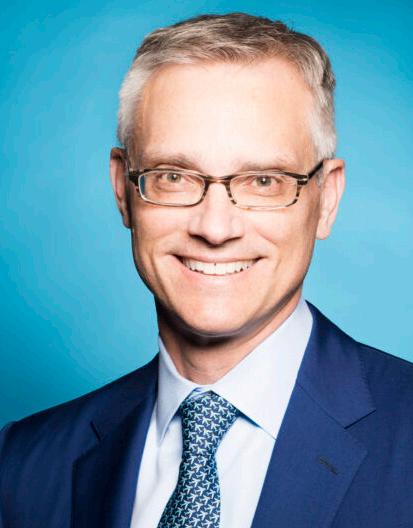
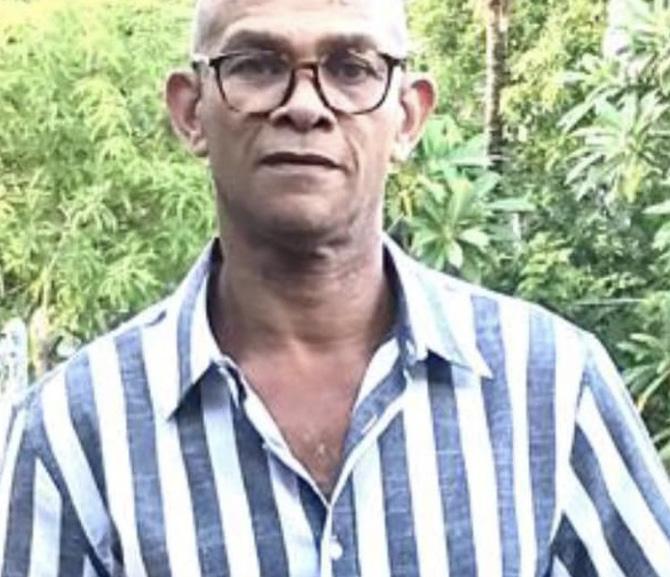
The nephew of well-known entertainer Beres Hammond has gone missing in Jamaica. Fabion Hammond disappeared without a trace since June 15 after arriving in Jamaica and his loved ones are seeking the public’s assistance in locating him.
A relative explained that Hammond, a businessman who resides in Miami arrived at the Norman Manley International Airport (NMIA) about 2 p.m., and was dropped off at his home in Allman Town, Kingston.
She said family has not had no contact with him, except for a friend from who
he was seeking a ride to go to St. Catherine’s. His relatives in Florida have not heard from him either. Family members have since filed a missing person report at the Allman Town Police Station.
Hammond is of light complexion, green eyes and is about 6ft 2 inches.
A $1-million reward has been offered for information leading to the recovery of the businessman in his sixties.
Anyone knowing the whereabouts of Fabion Hammond is being asked to contact the Allman Town Police Station at 876 922 2842, or 119.


Carib News, from its very inception and its mission for 42 years beginning in 1982, was to advance the recognition, interests and influence of the Caribbean American community, a mission that sparked the founding of Carib News, the first regular weekly newspaper for the Caribbean American community and whose mission was to pull together the region in a cohesive manner. Also in 1995 some 29 years ago Carib News organized the annual Caribbean MultiNational Business Conference (CMBC) as it is now known; it was to cement the interest of the Caribbean region, the Caribbean American community and the community of African American stakeholders to work together in the interest of inviting members of the US Congress to the Caribbean annually to experience and understand and to build better alliances that would augur to the benefit of all people and certainly a better sense of the Caribbean American community and its contribution.
This effort through the years and the agenda, was the recognition of the Caribbean American steady and historic contribution that Carib News has called a ‘partnership for progress’- it laid out the historical contribution of the Caribbean immigrants to the United States’ own development, from the war of independence through current contribution in so many critical areas of progress. Year after year at the CMBC meeting in the Caribbean a number of Members of Congress attended and the idea of a Caribbean Heritage Month was always raised, and with members of the CBC
who would have the power and influence to make it happen. It was certainly good to see other organizations and individuals taking up support for the concept of a Caribbean Heritage Month and joining in the effort to push that concept. It was however at the CMBC conference in the Caribbean when a meeting of the Congressional Black Caucus members present endorsed the concept formally and Congress member Barbara Lee was charged with the implementation of the Caribbean heritage month effort; we were delighted then when the realization of the Caribbean Heritage month was accepted and when in fact the President issued a proclamation of the Caribbean Heritage month; it took decades of effort building alliances, creating the awareness in a consistent manner over time with determination that brought about the success and the declaration of the Caribbean heritage month, so as we celebrate Caribbean Heritage month 2024 with all of the challenges that we face in the region, in the Caribbean American community in the United states, and the need for understanding, collaboration and alliances - it is an even stronger drive for us to build on the alliance that brought about the Caribbean Heritage month and keep focus on what we can do when we work together, looking at the historical contribution of Caribbean Americans, looking at how we have worked together in the past, what we achieved and in today’s world how we must work together to overcome the challenges and the opposition that we face as a people. So while
we celebrate Caribbean Heritage month with its cultural vibrance and our people’s achievement we must also look to the contribution that we must make, and have made in the past, from the creation of the city of Chicago by the Haitian du Sable to Marcus Garvey who led the awareness of the Black movement and Black economic power, to Harry Belafonte who was the bedrock of the Civil Rights Movement in the United State; the work against apartheid in South Africa and a stable contributor to humanity; Clarence Baker- Motley from Saint Kitts who was the sleeping giant that helped to bring about so many advances for Blacks in the United States; Shirley Chisholm who set the pace for Black women in the US Congress and the advancement of the Black agenda; to today where Kamala Harris with her Jamaican background serves as the Vice President of these United States; Carl Heastie from the Bahamas is the first Black elected Speaker of the New York State Assembly; Stephen Horsford with Trinidadian roots now chairs the Congressional Black Caucus and just so many more.
In today’s issue of Carib News we have what we call the Caribbean American Power 100, people who are creating excellence in today’s world and making a difference; we are saluting them in their various areas at various levels working and making a difference and that is what Caribbean Heritage month means, how we can contribute. The bonds between the United States and the Caribbean remain strong rooted in similar lega
cies, trials and triumph, oppression and liberation, narratives of advancement on similar parts of progress driven forward by our sheer dedication to fostering opportunities and forging a brighter future for all. We can work jointly, collaboratively to advance the empowerment positions of the Caribbean American community and the Caribbean region and we recognize that it has to be done working together with our partners of color in the United States, so during the time when we celebrate the achievement of millions of Caribbean Americans, and we should do that, we should work to and commit ourselves to work collaboratively with our African American friends who in the same month of June celebrate Juneteenth; they fight for their own freedom and we must be supportive of each other as we face the same problems and issues and we must take ownership for the leadership of community and hold them to the task; we cannot outsource leadership, we have to come together in our own best self-interest working collaboratively with those of common heritage. We have to be united among ourselves even when there are differences in terms of island and country, but we must be aware of the common heritage; we know and respect the common mission, we know we have to find common solutions, so let Caribbean Heritage month serve as a catalyst to pull us together, to work together, and be stronger together.
Vote by William J. Barber II
If you’re an ordinary American who goes to work to pay the bills or takes care of a loved one most days, it’s easy to feel down when you see the headlines about the 2024 election. Donald J. Trump has been convicted of 34 felonies for falsifying business records to cover up hush money he paid to bury an alleged affair with a porn star during the 2016 campaign, and the Republican Party continues to think he’s their best candidate. At the same time, President Biden is struggling to hold together his Democratic base as images of devastation in Gaza continue to dominate the news. Stories of good news in politics seem few and far between. But as a preacher, I learned a long time ago that you don’t get to the good news by looking away from problems; the good news is most often found right amid trouble. Yes, politics is a mess in 2024. But, at the same time, several popular movements of everyday people struggling for economic justice have emerged that have the potential to reshape our politics. Against the backdrop of decades of rising inequality, low-wage worker movements have made huge strides since the pandemic, insisting that living wages are a moral issue for “essential workers” and seeing the largest increase in real wages in decades. Young people who’ve watched education and healthcare costs soar have come together to form effective coalitions for debt relief and won billions in loan forgiveness. Leveraging worker power, unions have waged effective strikes and negotiated new contracts
while expanding to include new workers, especially in the South. Though they’re rarely in the headlines, these movements made up of millions of low-income workers have the potential to re-frame political debates for people who are weary of the status quo. The good news in 2024 is that poor and working people are the new swing vote in US politics.
A report from Lake Research Partners demonstrates just how powerful this untapped coalition of low-income voters could be.
Looking back at the past three Presidential elections, they found that in the seven states that will likely decide the 2024 election—Arizona, Florida, Georgia, Michigan, North Carolina, Nevada, and Pennsylvania—low-income voter participation was an average of 12 percentage points lower than that of their higher-income voters. Using past averages to project 2024 turnout, this study measured the difference between the margin of victory in the last Trump/Biden matchup and the number of eligible low-income voters who are likely not to vote. In Georgia, for example, Biden won by almost 12,000 votes in 2020. In North Carolina, he lost by 74,000. But in both states, more than a million eligible low-income voters will likely not vote in 2024 if past trends continue. That’s a huge potential swing vote, and the proportions are similar across the seven swing states in the study.
Since the 2024 Presidential race will likely be a rematch of 2020, this study used exit poll data
from 2020 to ask who unlikely low-income voters would vote for if they did turn out in 2024. Of the 1.3 million likely nonvoters in Georgia, 746,000 would likely be Biden voters. Of the 1.1 million in North Carolina, some 594,000 would likely go for Biden. In short, Biden and other Democrats have a huge advantage among this demographic when they are able and willing to vote. The overwhelming takeaway of this study is that a relatively small increase in low-income voter turnout in any of these seven states would dramatically increase Biden’s chances of winning a second term in the White House. The millions of low-income people who’ve risen as leaders in movements for economic justice over the past few years have the power to decide the outcome of the 2024 election.
Celinda Lake and her research partners are consultants for the Biden campaign, and there is a focus on the potential for his candidacy in 2024, but the potential power of this swing vote is much larger than one election or even one political party. Both Democrats and Republicans have ignored low-income voters for decades precisely because they are unlikely voters. But when the nonpartisan Poor People’s Campaign, which I serve as a co-chair, surveyed poor people to ask why they don’t vote, the number one reason they gave was, “No one speaks to us.”
This is why our campaign has committed to holding a Mass Poor People’s and Low-Wage Worker’s Assembly in Washington, DC, on
June 29th. We are bringing the everyday people who’ve demanded better wages from their bosses to Washington and insist that Republicans, Democrats, and Independents make clear what they will do to address the needs of 135 million Americans who are living on the edge in the richest nation in the history of the world. And we are committing to go home to our communities and reach 15 million of the unlikely low-income voters with the message that they have power in 2024. If they show up, especially in seven key states, their votes will decide the outcome in 2024. When they do, they will be able to help shape the reconstruction of an American democracy that works for all of us.
William J. Barber, II is President of Repairers of the Breach and author of the new White Poverty: How Exposing Myths About Race and Class Can Reconstruct American Democracy.
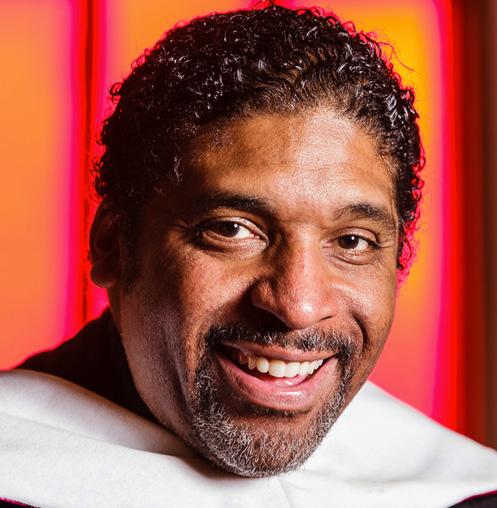
Are you one of the more than 100 million Americans who live somewhere that was (or still is) under a heat advisory?
As I write these words, the mercury is soaring. The world is reeling from the deadly impact of extreme heat and weather events. This is climate change in action. We are living it. And the thermometer-busting temperatures are just the tip of the (melting) iceberg.
Jocelyn Richards of Manassas, Virginia is currently staying in Maine to escape the summer heat in the South. She suffers from Chronic Inflammatory Response Syndrome (CIRS) from past exposure to mold. Heat is a major trigger for her due to Mast Cell Activation Syndrome (MCAS), a common component of CIRS. Richards says, “Not only is the heat itself a major trigger, but heat releases VOCs [volatile organic compounds] from asphalt. It becomes unbearable to even take a walk outside or run errands because it’s so difficult to breathe from the VOCs in the air. Along with other MCAS symptoms triggered by the heat like tachycardia, high blood pressure, and dizziness, it can quickly turn into a medical emergency if I’m out in the extreme heat for even half an hour.”
Richards is still looking for a permanent place to reside with mild temperatures and low levels of the environmental toxins that also trigger her illness. And stories like hers are increasingly common.
A host of illnesses are caused or dangerously exacerbated by extreme heat. Air quality is generally worse during periods of extreme heat. Ground-level ozone – the main component in
by Ben Jealous
smog – presents one such threat. It is produced when pollutants, like those from burning fossil fuels, react with heat and sunlight. The stagnant, hot air during heat waves worsens ozone pollution.
The infamous 2022 summer heat wave in Europe is now thought to be responsible for up to 70,000 excess deaths, with ozone pollution playing a big part. Julie Nicely, an atmospheric chemist at the University of Maryland who worked on a report on the 2022 heat wave, noted the mix of conditions created by such a heat wave “is very bad for the lungs and the cardiovascular system. It’s just very unhealthy.”
Then there is the smoke from wildfires. In addition to the destruction they cause, wildfires are making it harder for millions of Americans to breathe. It is a problem that is getting worse with longer, hotter fire seasons – another feature of climate change. The still-burning Post Fire northwest of Los Angeles is just the most recent high-profile fire in California to get national attention. And wildfire smoke has now become an issue for even more parts of the country.
At one point last summer, Chicago officially had the worst air quality in the world. Other major American cities across the Midwest and East Coast were similarly impacted, as smoke pollution from Canadian wildfires poured over the continent. The threat of a repeat this summer is still there. Wildfires in Canada are still raging, and experts say the 2024 season still could be as bad as or worse than last year’s. In places where the wildfires occur, once the
flames subside, flooding becomes a threat. According to the National Oceanic and Atmospheric Administration (NOAA), the removal of trees and shrubs increases the the speed and volume of runoff and hot fires can “create a water-repellent layer of topsoil, which further amplifies runoff volume and speed,” increasing the risk of flash floods.
The heat itself dries out the ground and makes water absorption more difficult, which creates a threat of flash floods. And as the National Institute of Environmental Health Sciences points out, “Warmer air holds more moisture, resulting in heavy rainfall, snowstorms, and flooding.” And “warming seawater can fuel stronger, more destructive hurricanes.” NOAA predicts an 85% chance of an above-normal hurricane season this year.
Beyond the threat of hurricanes along our eastern and southern coasts, inland storms are a growing threat for more and more Americans. The regions impacted by serious tornados are expanding. And once-rare derechos, another kind of incredibly destructive windstorm, are becoming more frequent.
Sadly, the list goes on. Around the world, threats from increasing temperatures include: rising sea levels, food insecurity from the loss of land suitable for crop cultivation, increased risk of infectious disease outbreaks and another pandemic like COVID-19, and the extinction of pollinators that sustain the natural life cycles on which we all depend. But although the situation is dire, we cannot give in to despair. We must invest in climate-resilient infrastruc-
ture and support communities most affected by climate change. The more than $1 billion investment by the Biden-Harris administration to expand shade-producing and air-cleaning tree canopies in cities across the country is one example. I was recently in Michigan with US Department of Agriculture Undersecretary Homer Wilkes to promote the many benefits of the urban forestry initiative in that state. At the end of the day, though, when it comes to the cascade of devastation caused by rising temperatures, there can be no substitute for tackling the climate crisis head on. First and foremost, that means hastening our transition from an economy that runs on fossil fuels to one powered by clean, renewable energy. The extreme heat and weather events we’re experiencing are not only a wake-up call. They are an immediate call to action to redouble our efforts towards that transition.
Ben Jealous is the Executive Director of the Sierra Club and a Professor of Practice at the University of Pennsylvania.
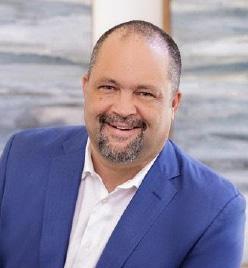

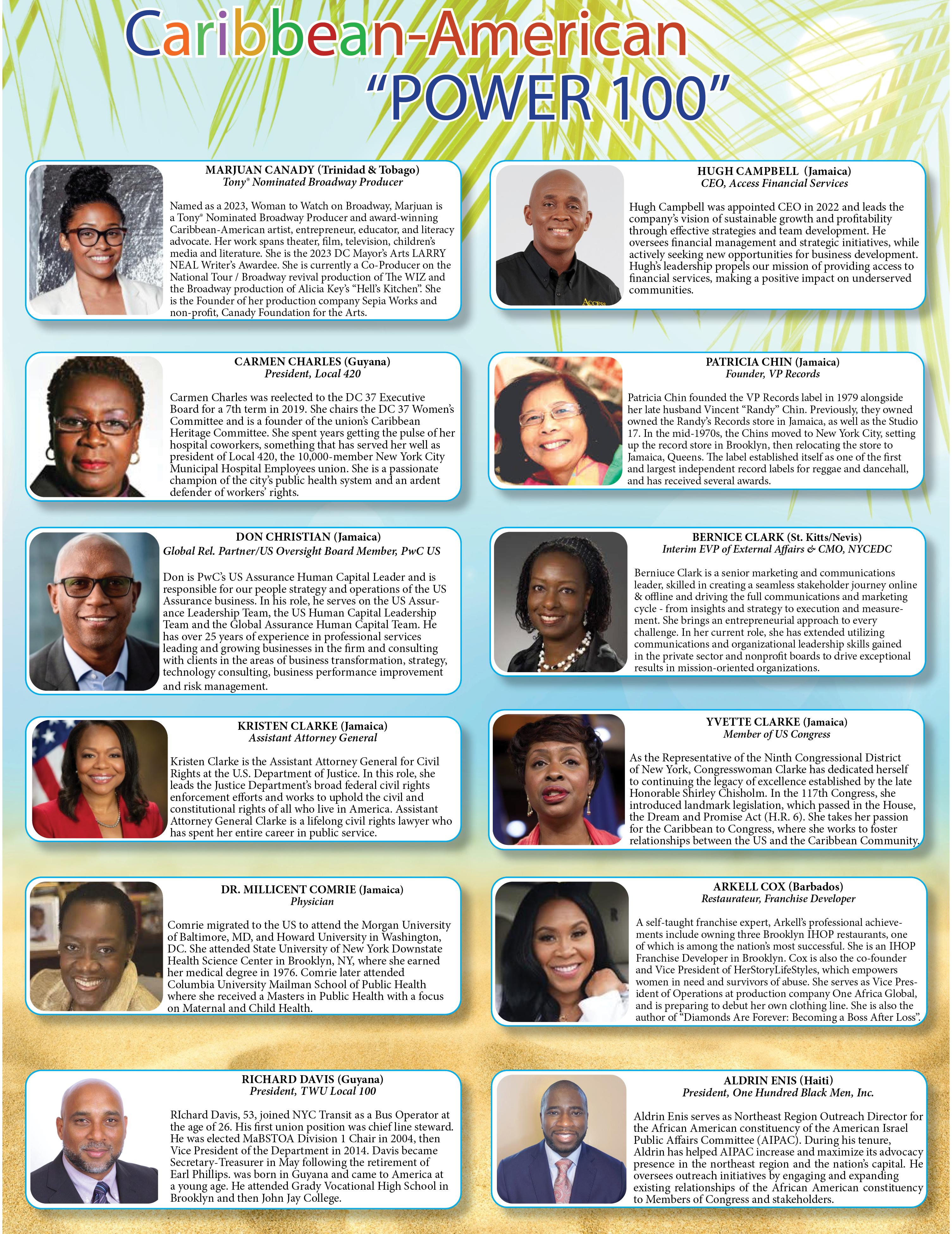
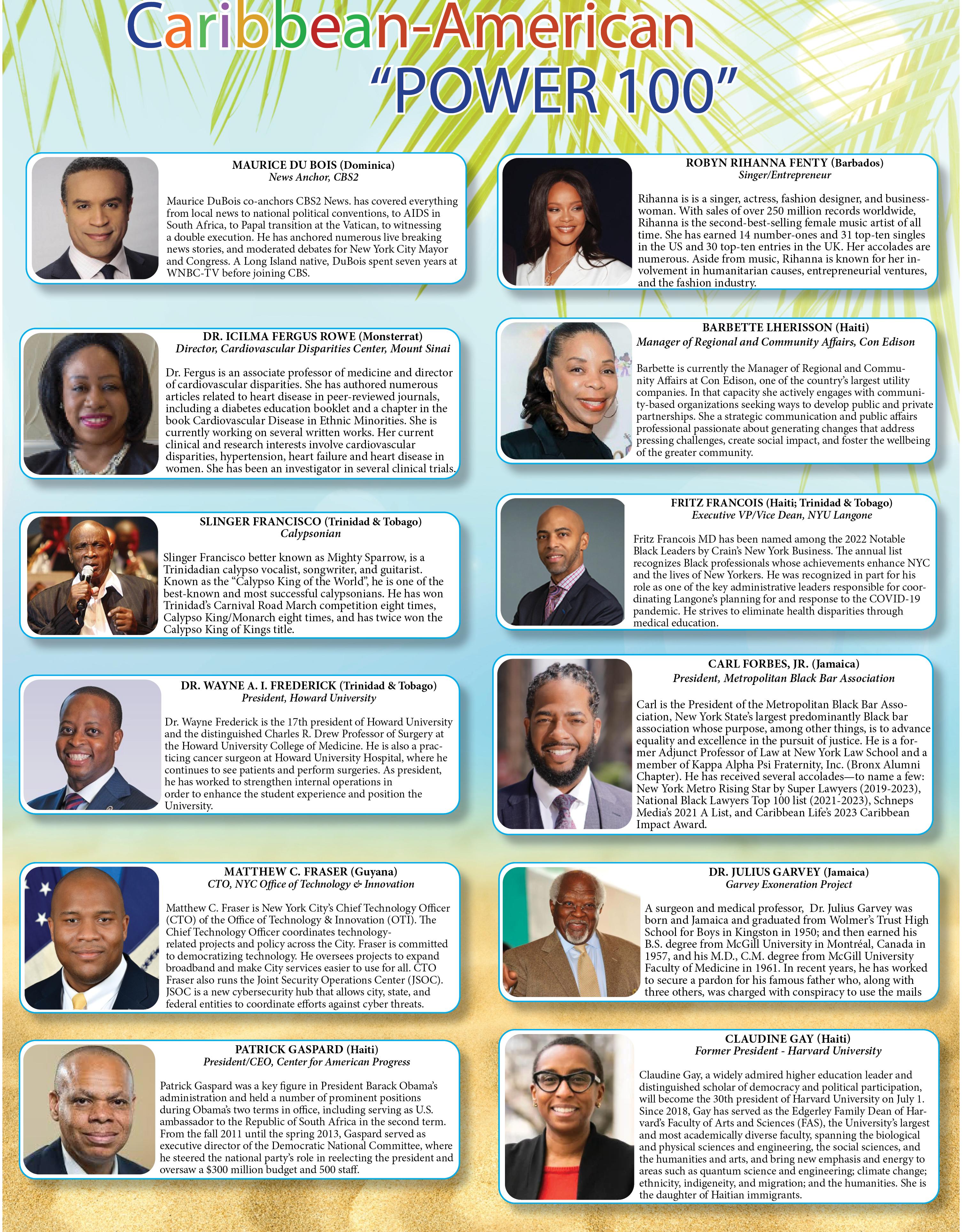
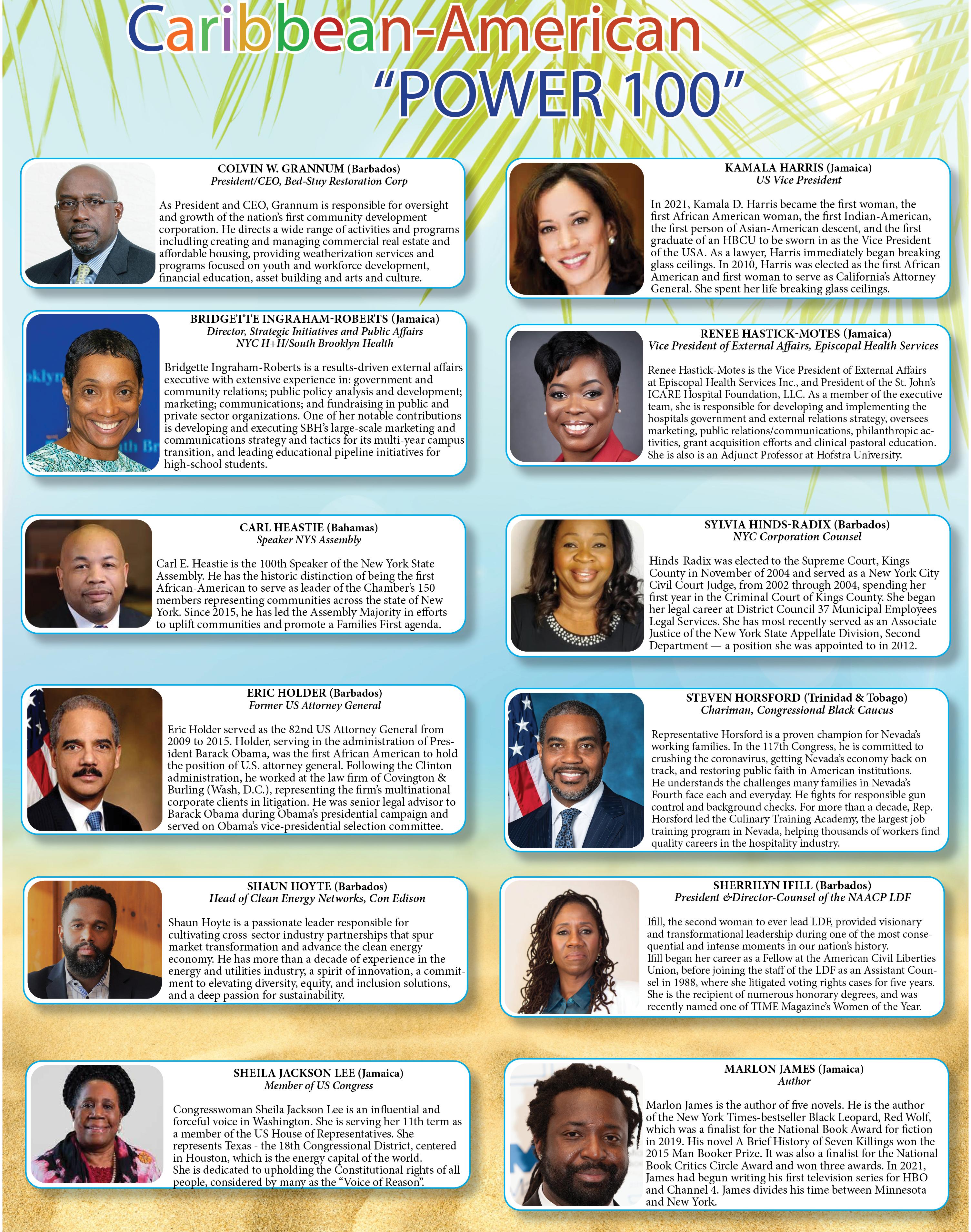
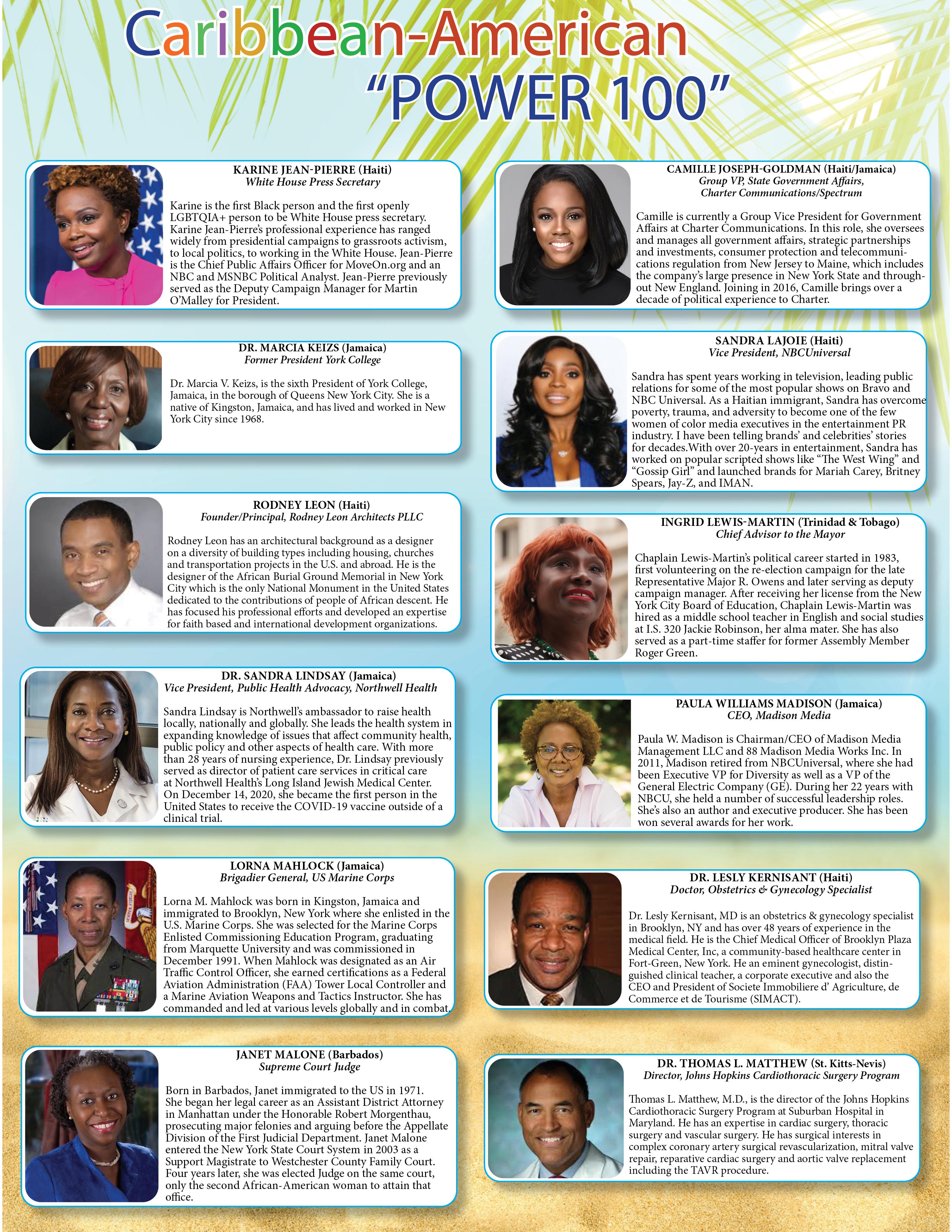
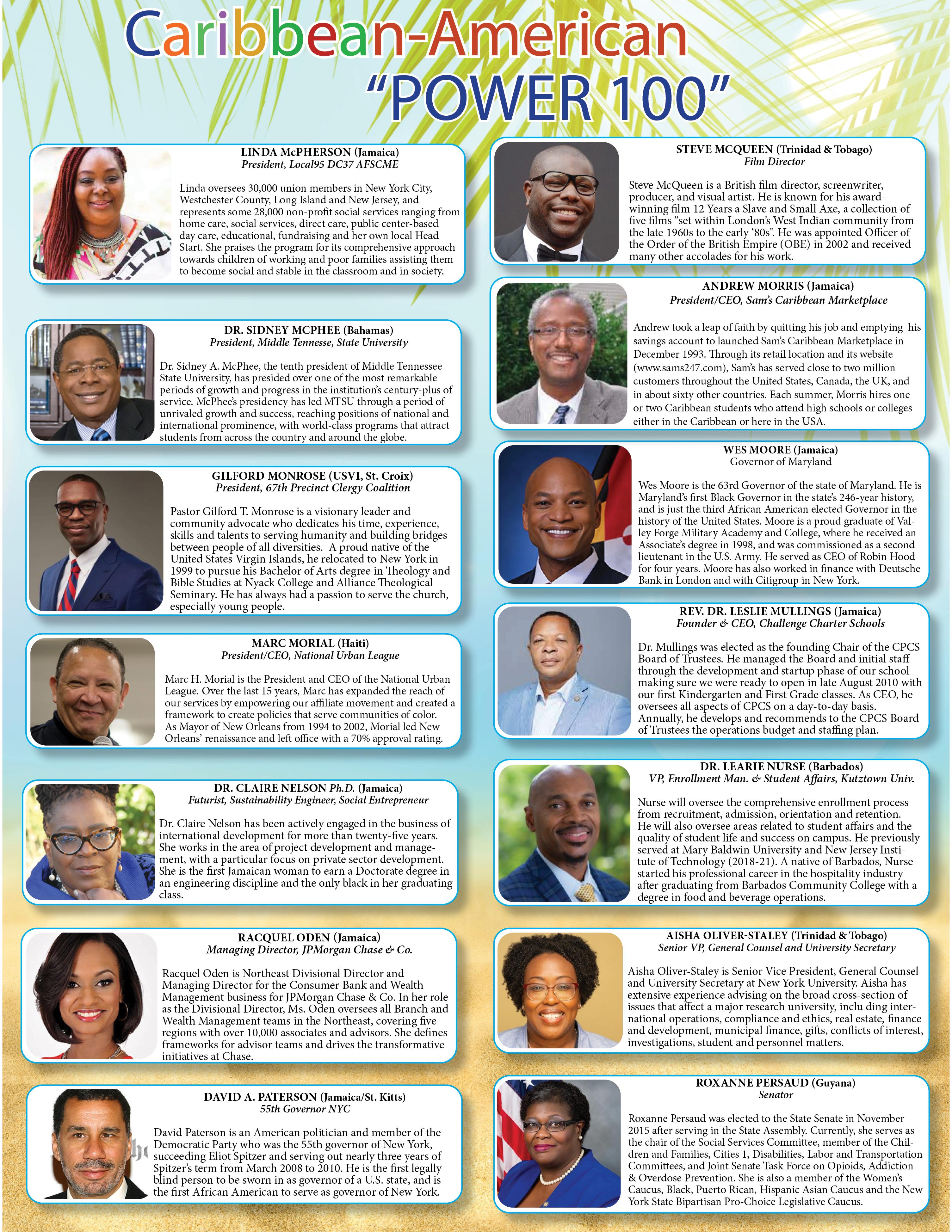
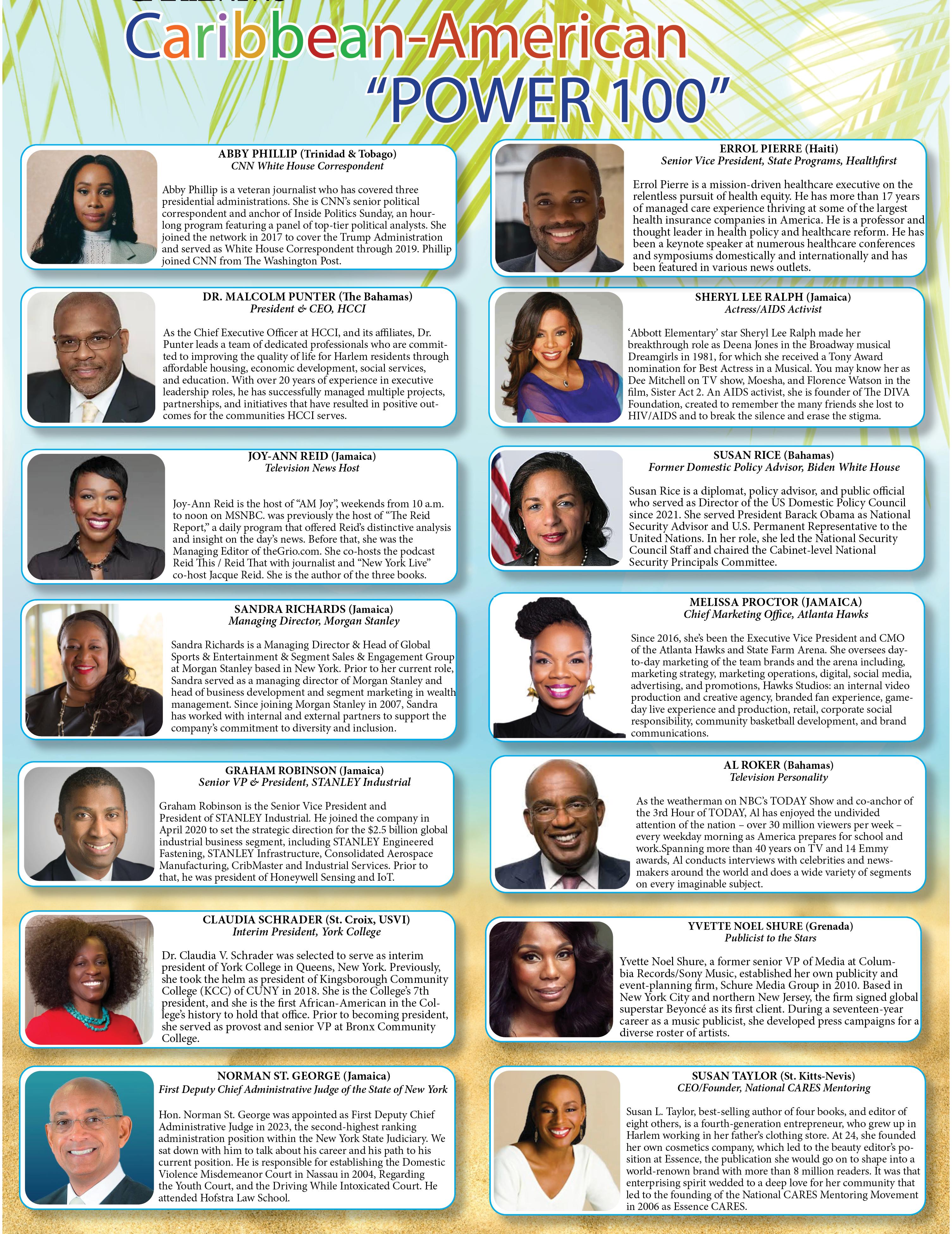
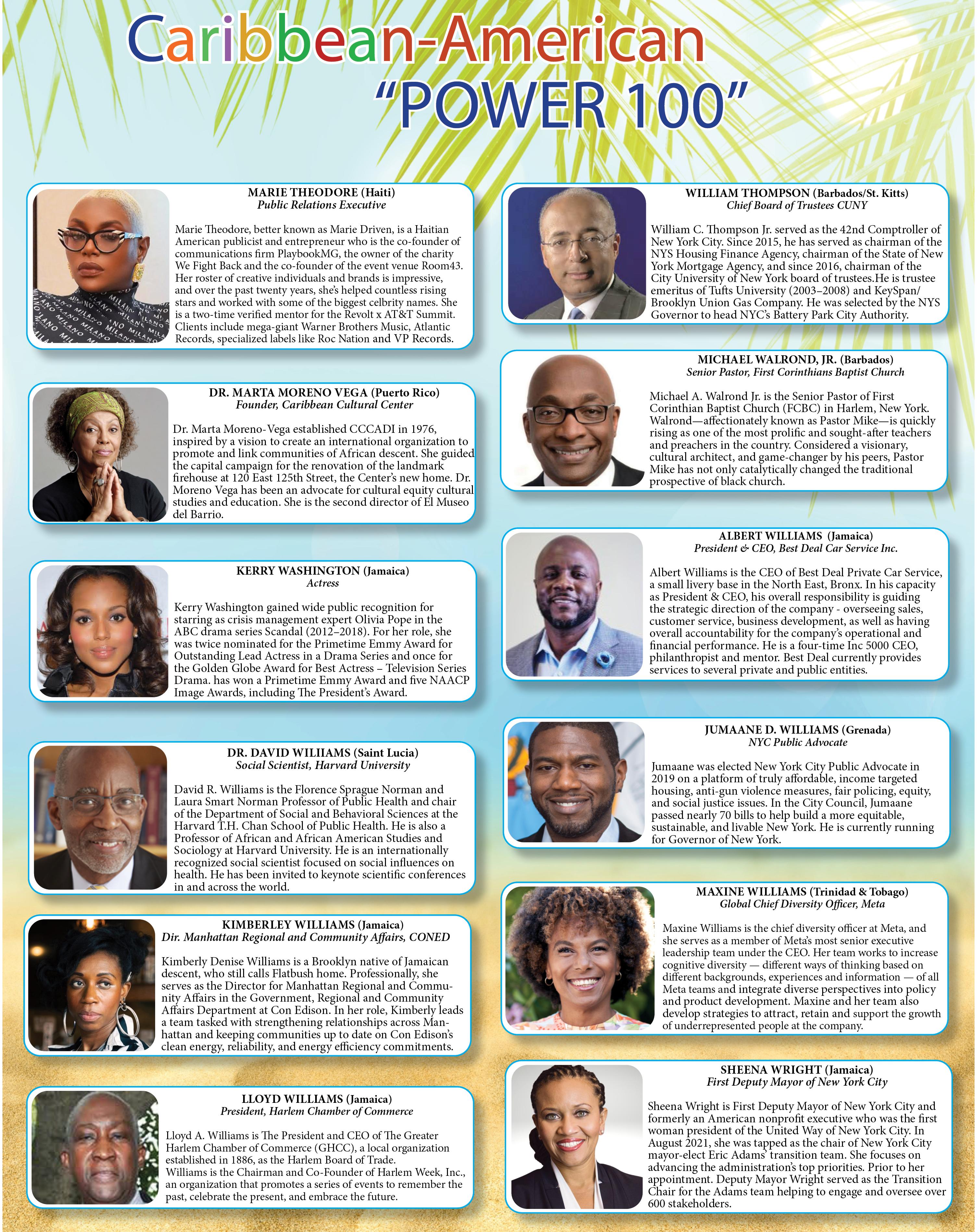
Company Reduces Voltage by 8 Percent to Maintain Reliability
NEW YORK – Con Edison is asking customers in certain neighborhoods in northern Queens to conserve energy while company crews repair equipment.
Con Edison has also reduced voltage by 8 percent in the areas as a precaution to protect equipment and maintain service as repairs are completed.
The area is bounded by the East River on the north, the Long Island Expressway on the south, the Nassau County line on the east, and the Grand Central Parkway on the west.
The area includes 130,000 customers in the neighborhoods of: Douglaston Manor, Douglaston, Little Neck, Bayside, Bay Terrace, Auburndale, College Point, Beechurst, Whitestone, Linden Hill, Queensborough Hill and Murray Hill.
Con Edison has asked customers in these areas not to use energy-intensive appliances such as washers, dryers, and microwaves until crews complete repairs.
The company also asks customers to limit
unnecessary use of air conditioning. If you have two air conditioners, use only one and set it to the highest comfortable temperature.
Customers can report outages and check service restoration status at www.conEd. com/reportoutage, or with our mobile app for iOS or Android devices, or by calling 1-800-75-CONED (1-800-7526633). When calling, customers should report whether their neighbors also have lost power. Customers who report outages will receive updates with their estimated restoration times as they become available. Customers can follow Con Edison on X (formerly known as Twitter) or like us on Facebook for general outage updates, safety tips and storm preparation information. The equipment problems in these neighborhoods have no effect on the rest of the Con Edison system. The company is in communication with New York City Emergency Management.


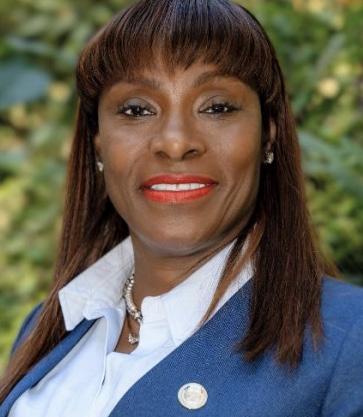
Chaplain Dr. Ingrid P. Lewis-Martin, Chief Advisor to New York City Mayor Eric Adams, is a lifelong New Yorker whose entire career has been devoted to public service and the people of the city she loves. From her initial calling to advocacy as a fourth-grade student (when she and a group of her peers protested at their local A&P Supermarket to express their displeasure that no persons of color were employed there) to her current role in senior leadership at City Hall, Ingrid has steadfastly believed in the power of change and the importance of community empowerment.
Chief Advisor to the Mayor As the Chief Advisor to Mayor Eric Adams, Ingrid P. Lewis-Martin is part of the 3-woman City Hall executive leadership team that runs and operates the daily functions of the Adminis-
tration. She reports directly to the Mayor on a wide range of issues and initiatives across City government, and she has the distinction of addressing issues that are problematic and need to be effectively and favorably resolved. In the absence of the Mayor during an emergency,
Chief Advisor Ingrid P. Lewis-Martin is his designee assigned to work with the Office of Emergency Management to ensure that the issue is managed and resolved.
Ingrid P. Lewis-Martin is responsible for overseeing both the Office of Administrative Services and the Office of Appointments. The Office of Administrative Services is responsible for coordinating the day-to-day operations of the Mayor’s Office and agencies under the City, which encompasses overseeing City Hall’s $60M+ budget and the strategic planning and
hiring of talent, managing office supplies, and providing technical support to staff. In her role supervising the Office of Administrative Services, Ingrid is tasked with ensuring that City government works efficiently and equitably for New Yorkers across all five boroughs. This work of the Adams Administration is guided by the core values of equity, effectiveness and sustainability, and through her oversight of hiring, Ingrid P. Lewis-Martin is committed to ensuring that all members of the Mayor’s Office share similar values.
She is an integral part of the braintrust and lends her voice and acute reasoning skills in all high-level meetings of vital importance.
Lewis-Martin has dedicated her life to public service.
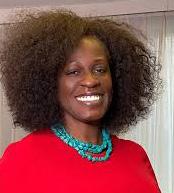
Dr. Claudia V. Schrader took the helm as interim president of York College of The City University of New York (CUNY) in January 2024. She is the College’s 8th president and is positioned to make an indelible impact on the lives of so many who choose education as a vehicle for transformation and elevation. Education has served as a vehicle for Dr. Schrader. She was born and raised on St.
Croix, the largest of the United States Virgin Islands. She earned her undergraduate degree from Rutgers University and her Master of Arts, Master of Education, and Doctorate of Education from Columbia University, Teachers College. Dr. Schrader also obtained a certificate from the Institute for Educational Management at the Graduate School of Education at Harvard University.
At Kingsborough Community College (KCC), she built on a long tradition of excellence. It is the first CUNY institution to be recognized three times by the Aspen Institute as one of the Top 10 community colleges in the nation and holds a nationally recognized model for Learning Communities. The College was awarded $1,186,900 by the U.S. Department of Labor, Employment and Training Administration to its Division of Workforce Development, Strategic Partnerships & Office of Continuing Education to create a Job Corps Scholars Program for youth. Additionally, KCC also secured a $857,000 grant from the NYS Workforce Development Initiative for the development of a Maritime Technology Apprenticeship Program making it the first Department of Labor-approved apprenticeship program for
marine mechanics in the nation. Dr. Schrader also secured $1 million donation from Leonard & Louise Riggio, founders of Barnes & Noble for student scholarships. The gift stands as the largest gift in the College’s history. Recognizing that incoming students were missing out on the excitement of beginning their college experience on campus during the COVID 19 Pandemic, in 2020 she created the KCC Welcome Wagon. Dr. Schrader traveled around Brooklyn and throughout NYC’s other boroughs to meet incoming students at their homes and jobs to welcome them to KCC, and assure them that they would find KCC and its president accessible, available, and ready to support their success. Her efforts have been featured on Spectrum News NY1 and in the NY Daily News, InsideHigherEd.com, Forbes, Positive Community Magazine and in a number of local newspapers.
Prior to becoming president at Kingsborough, she served as provost and senior vice president at Bronx Community College, CUNY; as associate provost at William Paterson University of New Jersey; and as associate provost at Medgar Evers College, CUNY, where she also held faculty rank with tenure. Dr. Schrader
also taught as an adjunct at Teachers College, Columbia University, Bank Street College, and the College of New Rochelle. Her professional service includes serving as a peer evaluator for the Middle States Commission on Higher Education; membership on the American Association of Community College’s (AACC) National Council for Black American Affairs; and a 3-year term on the AACC Commission on Diversity, Inclusion and Equity. Dr. Schrader believes strongly in giving back to both her local and global community. She is a Life member of Alpha Kappa Alpha Sorority, Incorporated®and is an active member of the Eta Omega Omega chapter in the Bronx, where she has served as Recording Secretary, co-chair of the Rites of Passage Program and chair of the Leadership Committee. For the past 14 years, she has volunteered with Habitat for Humanity Global Village Program building homes in Brazil, El Salvador, Vietnam, South Africa, Ghana, Kenya, Indonesia, Ethiopia, Malawi, Zambia and Thailand for families in need. She serves on the board of the Brooklyn Kindergarten Society.

Con Edison Kimberly Denise Williams is a Brooklyn native of Jamaican descent, who still calls Flatbush home. Professionally, she serves as the Director for Manhattan Regional and Community Affairs in the Government, Regional and Community Affairs Department at Con Edison. In her role, Kimberly leads a team tasked with strengthening relationships across Manhattan and keeping communities
up to date on Con Edison’s clean energy, reliability, and energy efficiency commitments.
Outside of the office, Kimberly has maintained her passion for writing and the arts. She has written articles for several publications and provided editorial content for community groups. Her volunteer efforts include the Black History Committee at the Lenox Road Baptist Church and working with Voices
of Lefferts, a local community journal. Kimberly also sits on the advisory board for Caribbeing. Kimberly has a Bachelors of Arts from Harvard University where she pursued a joint degree in History and African and African American Studies. She also has a Master of Science in Media and Communications from the London School of Economics. In the spring of 2024, she completed the Coro Leadership New York program.
Northwell applauds CARIB NEWS for being a part of the movement for change and empowerment in the United States. We support their mission of highlighting the accomplishments of the Caribbean-American community and developing strong connections in a “Partnership for Progress and Power.”
Congratulations on the 11TH ANNUAL CARIBBEAN-AMERICAN POWER 100
Margaret M. Crotty Chair, Board of Trustees
Michael J. Dowling President & CEO
Sandra Lindsay, DHSc, MBA, MSN, RN, CCRN-K, NE-BC Vice President, Public Health Advocacy


Miss Trinidad and Tobago is a national beauty pageant that has been held annually since 1954, crowned twenty-six-year old geotechnical engineer Anna-Lise Nanton as Miss World Trinidad and Tobago 2024 at the National Academy for the Performing Arts (NAPA) in Port of Spain.
Nanton told the Trinidad Express – “It is an amazing feeling to have the opportunity to represent this country.”
Before being crowned Miss World T&T, she was already the winner in the Fitness, People’s Choice and Talent categories.
Nanton hails from Pax Vale, Santa Cruz.
She holds a 1st class honours degree in Civil Engineering. from the University of Bath and is a graduate of St. Joseph’s Convent, Port-of-Spain. Anna-Lise strongly advocates for women in STEM fields.
Beyond her professional endeavours, she is a passionate supporter for holistic well-being, actively engaging in various sports such as football, touch-rugby, hiking, and running. Through her dedication to fitness, she is seeking to inspire and educate others on the transformative benefits of a healthy lifestyle...
WASHINGTON – Joly Germine, 31, of Croix-des-Bouquets, Haiti, was sentenced today to 35 years in prison for his role in a gunrunning conspiracy that smuggled firearms to Haiti in violation of U.S. export laws, and the laundering of ransoms paid for U.S. hostages held by the notoriously
violent Haitian gang known as 400 Mawozo. Eliande Tunis, 46, of Pompano Beach, Florida, who styled herself as Germine’s “wife” and was described at trial as the “Queen” of 400 Mawozo, was sentenced on June 5, 2024, to 150 months in prison for her role in the conspiracy. Two other
defendants in the conspiracy were also sentenced to jail time for their involvement.
The sentencings were announced by U.S. Attorney General Merrick Garland, U.S. Attorney Matthew M. Graves, and FBI Special Agent in Charge Jeffrey B. Veltri of the FBI Miami Field Office. The conspiracy resulted in the purchase in the United States of at least 24 firearms, including weapons designed for the military and close-quarters combat such as AK-47s, AR-15s, an M4 Carbine rifle, an M1A rifle, and a .50 caliber rifle...
Pepsi’s innovative AI stunt featuring Jamaica was showcased on the iconic billboards of Times Square in New York City on Saturday at 5 p.m. This event marked a historic moment as it was the first time one of Pepsi’s refreshed brand identity campaigns spotlighted a nation on such a prominent international stage. While similar AI stunts have been launched in various markets,
Jamaica is the only country to receive this special attention, according to a press release from Pepsi Cola Jamaica. Continuing its journey of unveiling a refreshed brand identity, Pepsi showcased this AI stunt at the famous Rick’s Cafe in Negril. This new branding marks Pepsi’s first major change in 14 years and was introduced in Jamaica under the campaign

“New Beats, Same Jamaican Flava.” The campaign “New Beats, Same Jamaican Flava” emphasizes that while Pepsi’s appearance has been updated, the flavor remains unchanged. In Jamaican slang, “beats” refers to clothing, making the campaign title a clever nod to local culture. Rick’s Cafe, a popular tourist destination that attracted over 1.4 million visitors last
year, was chosen for this latest reveal, which included hot air balloons adorned with the new Pepsi logo.
This digital display highlights Pepsi’s commitment to innovation and celebration of Jamaican culture, underscoring the importance of tourism to the island’s economy, Pepsi Cola Jamaica stated.


The Caribbean American Fashion Exchange™ Scholarship to the Fashion Institute of Technology (FIT), has been established for Caribbean students who live in the Caribbean to attend this prestigious New York institution.
The scholarship will be given to two students at a time regardless of major or programs. A primary requirement for applicants for this scholarship is a 500-word essay describing how the applicant intends to utilize his/her
Harlem, New York — HARLEM WEEK, the legendary celebration of arts, culture, and community, will proudly mark its 50th anniversary this year with a series of events to commemorate the neighborhood’s rich legacy. The milestone celebration recognizes HARLEM WEEK’s half a century as the constant thread for one of New York City’s most famous neighborhoods, serving as an advocate for issues such as health and economic empowerment.
“HARLEM WEEK began half a century ago with the vision to keep New York City’s most famous neighborhood vibrant, strong, and unique by bringing faith, political, and civic leaders together,” said Lloyd Williams, Co-Founder and Chairman of HARLEM WEEK. “We are privileged to serve as the keepers of this vision, as it has taken shape from a one-day festival into a summer of celebrations of where Harlem’s been and where it is going. Harlem history is American history, and this summer we will showcase the legacy upon which we have built. It’s why our theme this year is ‘Celebrate the Journey!’
HARLEM WEEK first launched in 1974 as the dream of political lion Percy Sutton, with the support of artistic legends that included Maya Angelou, James Baldwin, Tito Puente, Ossie Davis and Ruby Dee, as well as political giants David Dinkins, Charlie Rangel, and Basil Paterson. Their goal was simple yet powerful: galvanize community leaders to preserve the spirit of Harlem, which at that point had been the hotbed of Black excellence for more than 40 years, yet faced a pivotal moment in its history. Over the past five decades, this annual cele-
bration has grown organically, expanding its scope to address the evolving needs of Harlem. Through that time, HARLEM WEEK has been the constant thread to accentuate pride and unity. The event has brought residents, leaders, and visitors together to champion progress in health, wellness, economic empowerment, and beyond in a single, powerful voice.
HARLEM WEEK stands as a testament that Harlem’s history transcends racial boundaries—it is an integral part of American history. This annual celebration has honored numerous distinguished individuals over the years, recognizing their exceptional contributions to the community and beyond. Honorees have included a wide array of influential figures from various fields, such as entertainment, politics, business, and activism, all of whom have left an indelible mark on Harlem and the world at large. Through these recognitions, HARLEM WEEK continues to celebrate and preserve the rich cultural heritage of Harlem, while inspiring future generations to carry forward the legacy of resilience, creativity, and unity.
HARLEM WEEK’s 50th anniversary celebration will take place from Wednesday, August 7th, through Sunday, August 18th, 2024, with the support of presenting sponsors including Amazon Access and The Greater Harlem Chamber of Commerce.
See website at nycarribnews.com for the full schedule of events
education post-FIT to benefit home-country and region while providing a sustainable tie-in with the global fashion industry.
CAFE - Caribbean American Fashion Exchange™ is dedicated to the strengthening
and development of the Caribbean’s fashion industry, through a series of targeted events that would position brands before several sales opportunities.
Founded by Janice Lawrence-Clarke

My grandmother’s journey to what I thought was a hospice ended in her peaceful passing during the night. The news was a bewildering blow, especially considering we dropped her off on Sunday evening and she was gone before the week end. The recent disagreements we had over small matters like mopped floors were a distant memory now that she was no longer with us, and little did I know that her behavior might have been a sign of something more serious lurking beneath the surface. Reflecting, it becomes clear that Alzheimer’s may have been silently affecting my grandmother. Unbeknownst to us, my mother and I, although we suspected something was off based on revelations throughout her stay with us, she was never officially diagnosed, and the subtle hints of her condition went unnoticed. I remember brushing off whispers of Alzheimer’s from a church acquaintance, assuming it was merely a misunderstanding. The challenges we faced at home seemed exhausting, but sometimes as a caregiver, you become so consumed with the day-to-day battle of getting through, that no thought is given to what the patient is experiencing, in this case, the true battle my grandmother was silently fighting.
Granny Carmen, as we called her, was a short, little lady who bore four children, my mother Merle, and Alfred with my grandfather, St. Clair, and her other two children - Jackie and Steve, with men we never knew anything about.

The reason she came to live with my mom and me was because my Uncle Steve called one day to say she fell and hit her head and he could not watch her anymore. My grandmother up to this point was living on her own in the tiny one-bedroom house where my mother and her siblings were raised. It was a wooden structure located in Belmont, Trinidad. I only ever knew her in that place where the streets were almost too narrow for two cars to pass at the same time. I always wondered as a child who did the planning for these roads in the area - they weren’t too brilliant at all.
I always knew her as a woman on the go. She was a cleaner at the convent in Port of Spain, as far as we knew, and shared many a story about the nuns there. I was quite sure as a kid she invented many of those stories herself. She spoke fluent Latin and tried to teach me some words, which to this day have escaped me.
In the months that she lived with us, there was a restructuring of everything, and this should have been a sign. I hid everything from my jewelry to my keys to clothes, because she was convinced I was stealing from her and she would sneak into my room to reclaim her stolen goods. We had many stand-offs at home. She would sometimes stand at the louvered door in our kitchen that led to the street and shout to people to call for help, saying we had kidnapped her and were keeping her hostage. One of my most vivid memories is when she found the key, opened the door, and strolled up the street barefoot and in her nightgown into a neighbor’s yard on the corner of our street. She somehow convinced this neighbor who was a recluse, and who I also suspect had dementia at the time, to go off with her somewhere. They were both missing for a couple of hours until some young men in my neighborhood saw them sitting on a broken water pipe chatting the evening away. I blamed myself I have no idea how they found each other. That neighbor never spoke to anyone. How did my grandmother know to talk to her? How did she get her out of the house?
I swear, back then, I thought they spoke a secret language they only understood. This strange behavior confused me, but then again I was young, in my late teens, and passed it off as ‘old age’. The grandmother I knew and had grown accustomed to was a busy lady who
I visited two to three times a week after school. She always had tea and snacks on deck, and would hustle through her one-bedroom apartment getting ready for ‘work’. She said then that she had to get there at 5 pm. Most times she jetted off after 6 pm and we never suspected that there was no work. This went on for almost a decade.
As the days went by, it became evident that her actions were not just quirks but signs of a deeper struggle. Her confusion with everyday objects, accusations of theft, and moments of wandering off painted a heartbreaking picture of her deteriorating mental state. The memories she shared of her past hinted at a mind grappling with the past and present, unknowingly slipping away from us.
In the end, her passing left me with a heavy heart and tremendous guilt for not being more intuitive. If only we had recognized the signs earlier, perhaps we could have understood her struggles and provided the support she needed. But now, all that remains are bittersweet memories of having after-school snacks at her house and her calling me a peche, which in I learned French means having the peach; being in high spirits, and having a lot of energy - a description that only meant she saw me. and the haunting realization of what could have been if we understood the signs early on and provided treatment.
Mell P
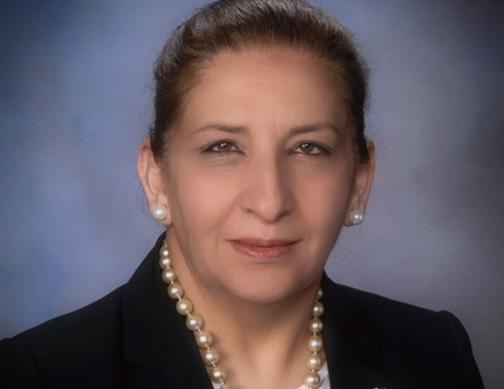
For Alzheimer’s Awareness & Brain Month, Carib News sat down with Dr. Tanveer Mir, currently the Chair of Medicine at South Brooklyn Health in Coney Island. She is a clinician-educator with experience in IM, Geriatrics Medicine, Memory Disorders, Bio-Ethics, Hospice and Palliative Medicine. In a nutshell, her special focus is helping to improve chronic conditions and disease, which she describes as both a passion and a commitment. Very early in her career, Dr. Mir became interested in geriatrics, and care of the elderly. As she explains it “as our age span extends, chronic conditions are being seen more frequently in individuals”. Conditions like heart failure, COPD, cancers, and arthritis. Chronic conditions and their co-existence complicates medical illnesses even more with memory disorders and dementia being one of them, is also a very important issue as age progresses. Given my personal confusion around my grandmother’s situation, as I brought up questions about how her condition could have gone unnoticed for so long, she mentioned that my grandmother’s story wasn’t unique and that it happens more often than not. We simply miss the signs or quite frankly do not know what to look for.
Dr. Mir explained that in patients who show signs of Alzheimer’s, the oldest part of the memory is retained the most, and high-func-
tioning people who have a college education, or those who work throughout their lives, they tend to function at a high level.
However, people with a lower levels of education and who live a mostly sedentary lifestyle, dementia in them may occur earlier.
Dementia or Alzheimer’s?
To clarify the difference, dementia is loss of memory over the years. It’s a chronic condition in which brain cells are lost. Different types of dementia can be stroke-related or head injury; it could be related to small strokes in the brain, it could be related to a brain tumor.
“Many other condition that leads to dementia, but Alzheimer’s remains the commonest one.
About 85% of all dementia is still considered to be Alzheimer’s,” she said.
It is not uncommon in primary care because patients are not screened routinely for dementia.
What to Pay Attention To As a Care Giver
People living with memory changes from Alzheimer’s or other dementia often find it hard to complete daily tasks. Sometimes they may have trouble driving to a familiar location, organizing a grocery list or remembering the rules of a favorite game.
If the person you are caring for needs help to do simple tasks like microwave settings or to record a TV show, something else might be happening with them.
They can lose track of dates, seasons and the passage of time, difficulty with balance or trouble reading. They may also have problems judging distance and determining color or contrast, causing issues with driving. They may stop in the middle of a conversation and have no idea how to continue or they may repeat themselves. They may struggle with vocabulary, have trouble naming a familiar object or use the wrong name.
Continued on the website at nycaribnews.com

Sir Patrick Allen bestowed the Governor-General’s Achievement Award (GGAA) to Roy “Gramps” Morgan during the 10th Biennial Jamaica Diaspora Conference held at the Montego Bay Convention Centre on Wednesday, June 19, 2024. Gramps was among five diasporans from Canada, the UK and the USA, who were honored for their outstanding contributions in developing their communities at home and abroad. He was recognized for his significant contributions to Reggae music and humanitarian causes, particularly his advocacy for unity, love, and social justice as a member of Morgan Heritage. His song People Like You has
resonated globally with its message of gratitude.
The acclaimed Positive Vibrations musician was commended for his philanthropic endeavors and dedication to preserving Jamaican culture, aligning with the Governor General’s Programme for Excellence. The citation for Gramps, read at the event, specifically highlighted his philanthropic focus on healthcare, education, and community development. He supports disadvantaged youth through scholarships, aids Caribbean disaster relief efforts, and has played a vital role in establishing a healthcare facility in St Ann. Notable is his involvement with the Issa Trust Founda-
tion in constructing the Mary Issa Health Centre, offering free healthcare to children and adolescents in the region.
Sir Patrick Allen, before presenting the awards, emphasized that the recipients are remarkable individuals whose stories inspire and showcase resilience. He specifically praised Roy Morgan for his philanthropy and cultural contributions, mentioning how his song People Like You serves as a gratitude anthem and reflects his dedication to Jamaica. He emphasized that these individuals are pillars of hope and community, each bringing unique strengths to contribute to a better Jamaica.
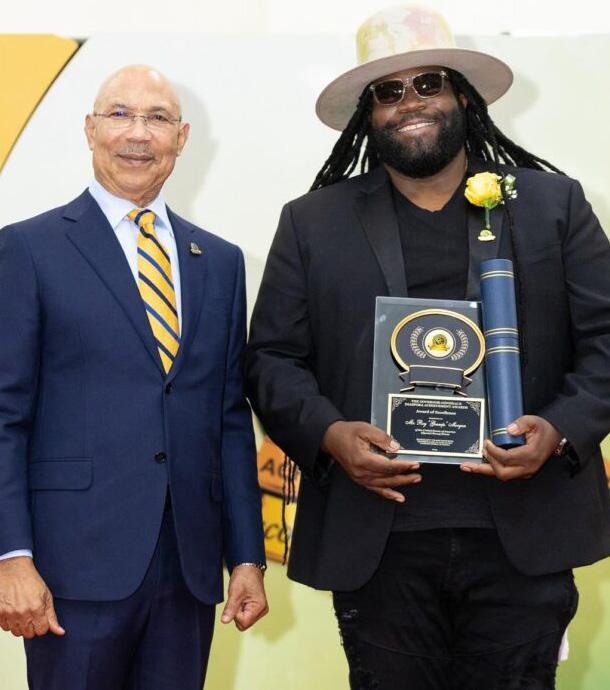
by Lesly Hayles

Reviving older riddims has become a trend lately, ever since Rvssian did it with his 2010 compilation Go-Go Club Riddim and rebranded it as the Dutty Money Riddim in December 2023. American sound system stalwart, Bobby Konders from Massive B Sound and Hot 97 FM in New York, has been producing music for years and making hits after hits from some of Jamaica’s biggest superstars.
One such production was the highly acclaimed Riot Squad Riddim, which came out in 2011 and featured Bramma, Burru Banton, Elephant Man, Future Fambo, Khago, Major Mackerel, Mr. Vegas, Pamputae and the iconic Vybz Kartel with his mega hit “Get Gal Eazy”. Depending on who you ask, some might say it’s his biggest production yet. This time around, Konders has revamped it as the Riot Squad 24 Riddim, adding ‘24’ to represent the year 2024.
However, instead of releasing a full compilation album first, Konders has decided to release one single at a time to facilitate equal opportunity for each track
to receive the same amount of promotion and attention. He also sought out to give the younger generation of talented artists the chance to voice on such an iconic beat many worldwide have come to enjoy. This added a unique and newer sound to this older beat.
Choosing the right set of artists would always be on the basis of including mainly the younger artists such as Nigy Boy, Nadg and Pablo YG, with his track, “Tun Up The Club”, being the first to be released from June 7. Iwaata, as a young superstar in his own right, was just added to the Riot Squad 24 Riddim, and possibly a few others in the works. Konders has also secured a veteran, in the legendary Spragga Benz, his song being a collaboration with his RedSquare camp protégé, Xyclone, a chart-topper known for making waves in recent times.
“Tun Up The Club” has been doing very well so far, being in heavy rotation on several radio stations and streaming services. Working with Pablo YG was a joy, according to Konders, who believes in the next generation of artists in dancehall music.
“Nadg had linked me to send the riddim. He was aware of all the support I gave and got him off his big hip-hop song ‘We A Run Di Grung’. Nigy Boy is one of the hottest artists in dancehall and lives in NYC! I also supported him before him bust and his manager, Dr Love, was very positive to get him on the riddim,” expressed Konders.
“Pablo is fire! Great personality and work ethics. Very funny on social media. He has a bright future! His manager, YG, knows what they’re doing! I can’t comment on others (artists) that I don’t know. I enjoy the energy of young artists. It’s their time now! As someone that’s older, you better move with the times! I can definitely big up Skeng though. I’ve worked with him in Brooklyn,” Konders said in response to being asked about artists of this generation. In three weeks, Konders will be dropping
another single from the Riot Squad 24 Riddim, and the other singles every three weeks afterwards just the same. Therefore, by the end of August, the entire rhythm compilation should be done. This way, he can keep the energy up with songs dropping consistently and receiving equal promotion.
His 2004 Truth & Rights Riddim gave us the Richie Spice hit “Youths So Cold”. It would be Konders’ next riddim to revive and he hopes to get a few young cultural artists on it, as well as some foundation artists.

West Indies’ ICC Men’s T20 World Cup campaign came to an end on June 23, when the cohosts suffered a narrow defeat to South Africa in their final Super Eights fixture.
After an exceptional start in the first round, having gathered all eight points from their four matches to top Group D, and making into the Super Eights as a serious title contender, West Indies witnessed a dip in form against England, and South Africa. This cost them their semi-final berth.
Still, captain Powell is proud of how the team progressed throughout the year, moving up the ladder to third place in June 2024 [a recent loss saw them drop a position] in the ICC Men’s T20 International Team Rankings.
“I think the cricket we have played in the last 12 months or so is commendable,” stated Powell in the post-match presentation ceremony.
“Credit has to be given to the team. If you can take a year to move from number nine to number three in the world, that’s tremendous work.”
West Indies put up quite a show during the tournament, with a number of home players
firing up the crowd’s imagination. There were brilliant wins over New Zealand and Afghanistan.
The West Indies captain shared his joy in seeing a lot of buzz around the Caribbean again.
“We haven’t won the World Cup, but there was a lot of improvement. There’s a lot of buzz around the Caribbean again about West Indies cricket. We have done some very good things over the last 12 months.”
“Now is where the work starts. It’s for us to continue to work as a group, still be tight, and hopefully, just hopefully, we can continue to climb the rankings and make the Caribbean people proud.”
Powell acknowledged the support they received on and off the field during the home World Cup and identified it as a sign that the team was headed in the right direction.
“That (the support) has been fantastic. For all the venues that we have played, for all the social media likes and stuff that people have given us, we as a team really appreciate it.”
Emphasizing on comeback of the West Indies’

cricketing culture, he added, “It’s good to see that some buzz is back in the Caribbean for cricket, because we know how long that has died down. Now people are rallying around the West Indies as they do. Now, when we hear the anthem play, as players we feel something. I think that is heading in the right direction.”
The Windies succumbed to a disheartening loss against South Africa to step back from the tournament as they failed to defend a target of 123, in 17 overs (DLS).
A poor batting display kept them restricted to 135 runs in 20 overs, with Roston Chase (52 runs in 42 balls) bagging himself a half century. With the ball, Alzarri Joseph, Andre Russell, and Chase did an excellent job picking up a total of seven wickets between them but thanks to a composed finish from Marco Jansen and Kagiso Rabada, the South Africans took home a three-wicket win with five balls to spare.
Though dismayed at this outing, Powell credited his side for their spirit.
“As a batting group, this is one batting performance we’ll try our best to forget. I think we didn’t bat well in the middle overs especially,” Powell said.
“You see both teams bat on the wicket. Obviously, it wasn’t an easy wicket, especially to get started. I think it was a commendable bowling effort. 130 (135) at the halfway mark, we said we’re just going to give it our all, whatever happens, happens.
“Credit has to be given to the guys at the halfway mark. They believed, even though it was only 135. They fight to the very end.” (ICC)

The highly anticipated Netflix sports series ‘Sprint’ comes at the perfect time – both for the sport and for the digital age – according to multiple world champion Noah Lyles.
‘Sprint’ takes viewers on an exhilarating journey through the highs and lows of athletes’ lives as they battle it out for gold at the World Athletics Championships Budapest 23.
‘Sprint’ shines a particular spotlight on the rivalry between Lyles, 2022 world 100m champion Fred Kerley and Olympic champion Marcell Jacobs in the lead-up to last year’s World Championships. The series not only showcases the athletes’ personas, it also delves into their lives off the track. It reveals, for example, how Lyles – one of several athletes featured across the six episodes of ‘Sprint’ – overcame serious health concerns in his teens to become the poster boy for sprinting. The growth and evolution of world 100m champion Sha’Carri Richardson is another key sto-
ryline throughout the series
“Being part of ‘Sprint’ was an incredible experience,” said world 100m, 200m and 4x100m champion Lyles. “When I imagined the day where a docuseries would be created, I didn’t always envision me being the first person it would be about.”
Earlier this month, the series trailer was beamed across giant screens in New York’s Times Square ahead of an exclusive pre-screening at the Nasdaq Building in New York, where some of the stars of the show, along with other key figures in the sport, were treated to episodes one and five.
The full series is set to land on the Netlfix streaming platform and screens around the world on 2 July.
Speaking at the pre-screening, Lyles said that this series comes at the perfect time for the digital age that athletes are living in.
“We are rockstars in the top 1% and we live in the age of technology and social media,” he said. “It’s a part of our lives and we need an example of how the sport can go with it.”
Executive Producer Paul Martin expressed his enthusiasm and pride for the project.
“It felt like a gift,” he said. “We’re incredibly grateful to be able to go into this world. It felt like we really wanted to go above and beyond to make the best version that we could. There was just something about doing justice to this sport and what these athletes put themselves through. World Athletics opened the door for us, for whatever we needed to get this series done.”
Ato Boldon, the 1996 Olympic 200m silver medallist, lauded the producers of the series, and forecasted that it will help expand the oldest sport in the world.
“We know we have some of the best athletes in the world, but we also know we
have some of the best personalities in the world,” he said. “I look at this and say that this is going to open up a range of fans who casually follow these athletes, it’s going to grow our audience and engage fans that we didn’t even know we could get.”
